A leaf of emerald green passed down through generations,
filial piety and virtue broaden the heavens and earth.
Vitality in rural revitalization is seen in exemplary models,
Beilao Tea's fragrance spills over the seas and mountains.
Mentioning Beilao Tea, a well-known tea company in Qingdao, people always give it a thumbs up. There are two reasons for this: first, the tea is pure and of high quality, with an authentic Laoshan flavor; second, Hu Xiaolin, the CEO of the company, has exceptional skills in tea cultivation and processing, and his character is genuine and upright, making him a symbol of integrity and a banner figure among local Laoshan tea makers.
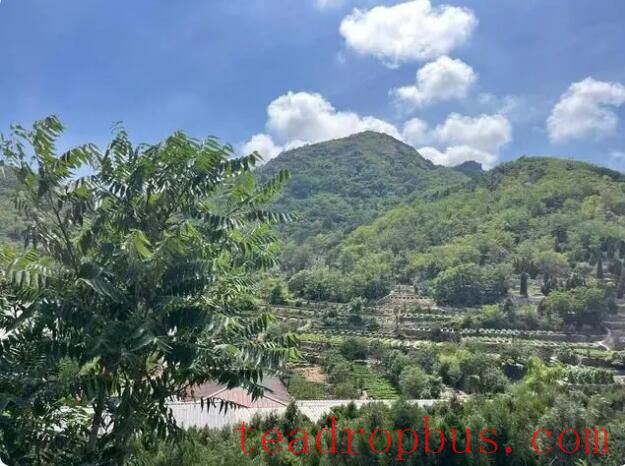
“Fate led me to choose the small enterprise of Laoshan tea, and while I cannot claim success, good fortune has always accompanied me. Honesty and perseverance have made the world rich and beautiful,” says Hu Xiaolin.
With three or four decades of experience as a tea person, the 55-year-old Hu Xiaolin has become more pragmatic and low-key. He believes that the responsibility of making tea is heavy, and the responsibility of making Laoshan tea is even heavier. From a young age, he began learning tea cultivation from his father and has experienced all the hardships and joys of being a tea person.
This year marks the 30th anniversary of the establishment of Laoshan District. Over these 30 years, Hu Xiaolin, who is dedicated to Laoshan tea, has been given opportunities and motivation to strive forward. Hu Xiaolin told reporters that in 1995, he won first place at the Laoshan tea competition, which was the first such achievement in his life, fundamentally changing his path. Following guidance from leaders and experts at the competition, he registered the first individual tea factory in Laoshan District that same year. In 1997, he won first place at a higher-level tea competition in Qingdao, which further boosted his confidence.
Going out into the world, establishing a brand, factory, and scale, and obtaining certifications are essential foundations for enhancing brand reputation. In 2001, Beilao Tea, representing Qingdao tea companies, received the “Pest-Free and Harmless Tea Certification” from the Quality Supervision, Inspection, and Testing Center of the Ministry of Agriculture. In 2004, it obtained national certification for organic tea products. In 2006, it was recognized as one of Shandong's top ten famous teas on behalf of Qingdao tea companies.
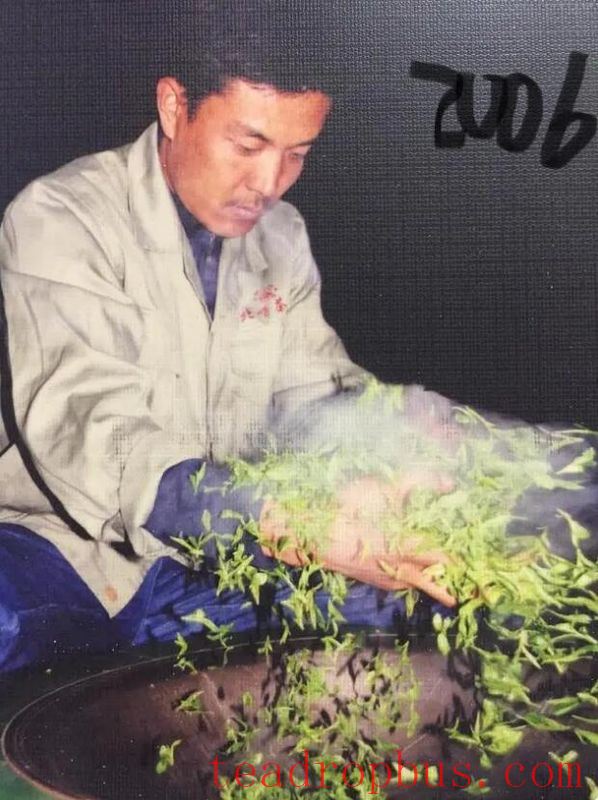
The character of a tea person is paramount. Hu Xiaolin is kind and honest, embodying the genuineness of the Laoshan people. In 2004, he received the title of “Founder” from the Laoshan District Charity Federation. During the SARS outbreak, he contacted the command center and personally delivered supplies to highway duty stations. During the COVID-19 pandemic, he also actively donated tea to support frontline workers. Since 2012, he has continuously collaborated with the Laoshan District Disabled Persons' Federation for five years, establishing the Beilao Disabled Employment Poverty Alleviation Base, which, through a combination of policy subsidies and corporate contributions, helped solve employment issues for 23 people. Over the years, he has donated over 700,000 RMB.
The creation of the entire tea industry chain, including production and branding, is arduous and lengthy. Beilao Tea has grown from nothing to excellence, from quantity to quality, and from excellence to innovation. It has crossed the threshold of improving quality and efficiency, leveraging the advantages of Laoshan's urban agricultural production area by positioning itself as a premium product. It has kept abreast of the latest trends in specialized and personalized customization, constantly exploring personalized models suitable for the enterprise, and striving to build a century-old brand.
“Over the decades, I have received many honors in various competitions, and the excitement and joy I feel are shared with my parents right away,” Hu Xiaolin said.
Parents are a child's first teachers. Although Hu Xiaolin's father, Hu Weijin, now 81, has retired from the front lines, he still occasionally works in the tea fields when he can.
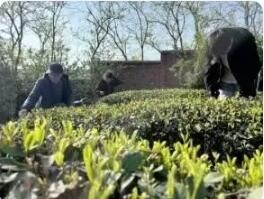
In Lu Yu's “Tea Classic,” it is written: “There is fine wood in the south.” Starting from the 1960s, after nearly a decade of efforts, Laoshan tea people overcame numerous difficulties to successfully acclimatize southern tea trees in the north. Hu Weijin was one of the first technicians trained by the Shazikou commune. Under his leadership, Beilao Village selected five acres of prime land for three years of rigorous trial planting. This involved meticulous measures such as ditch digging, winter soil preparation, seed selection and germination promotion, spring sowing, field management, cutting pine branches in summer to shade the young saplings, and winter mulching to protect them against cold. Surprisingly, they achieved success within a year. Looking back, the key to their breakthrough was human effort. The team led by Hu Weijin, an experienced farmer, took every step seriously and responsibly, which was crucial for their success.
The second year was the most critical period for the development of the tea tree's main branches, production branches, and root system. How to balance water and fertilizer, with no prior experience, relied on careful observation and consultation with experts. Fortunately, the new crop did not suffer from genetic diseases common in tea plants, providing a solid foundation for field management. The joy of the hard-working tea farmers was evident during the summer and autumn when the tea plants were harvested instead of cultivated, and the lush crops between the ridges brought great comfort. However, when tasting the leaves of the tea they had grown themselves, Hu Weijin frowned because northerners were not accustomed to the taste of Green Tea. Later, under the guidance of expert Zhang Fengchang, Hu Weijin and his family were inspired to continue their efforts.
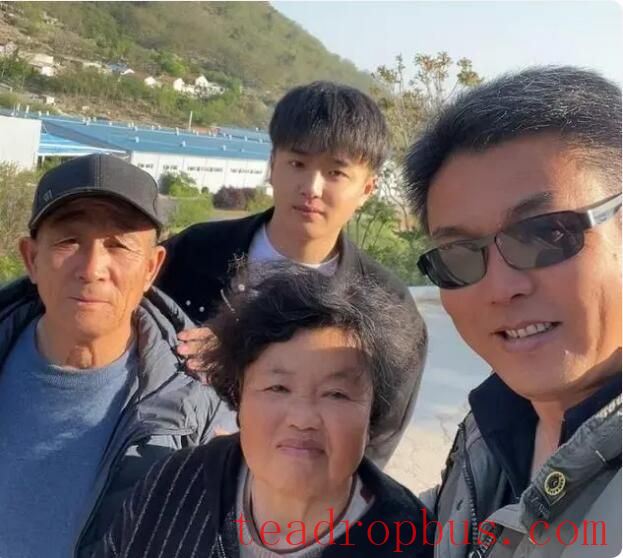
Three cycles of spring, summer, and winter brought the satisfaction of harvest. For three consecutive years, the village subsidized 300 RMB per mu, and the intercropped crops around the tea garden flourished. The goal of completing the tea garden in three years was accomplished successfully, achieving significant economic benefits and dispelling the idle gossip of those around them.
At the end of 1986, following the advice and coordination of Mr. Zhang Fengchang, Hu Weijin obtained the management rights to the tea plantation he had planted and managed himself, which was a pioneering move at the time. How to solve the major challenge of having tea but no market? Again, under the guidance of Mr. Zhang, Hu Weijin borrowed 6,000 RMB to purchase Tea processing equipment from Fuyang, Zhejiang. Mr. Zhang provided hands-on instruction, and batches of fragrant Beilao tea were produced. Sales in 1990 exceeded 20,000 RMB.
Over the past few decades, the Laoshan District Party Committee and the district government have continuously increased their guidance and support. Currently, the tea garden area has reached over 20,000 mu, and Laoshan tea has become a “golden leaf” for wealth generation.
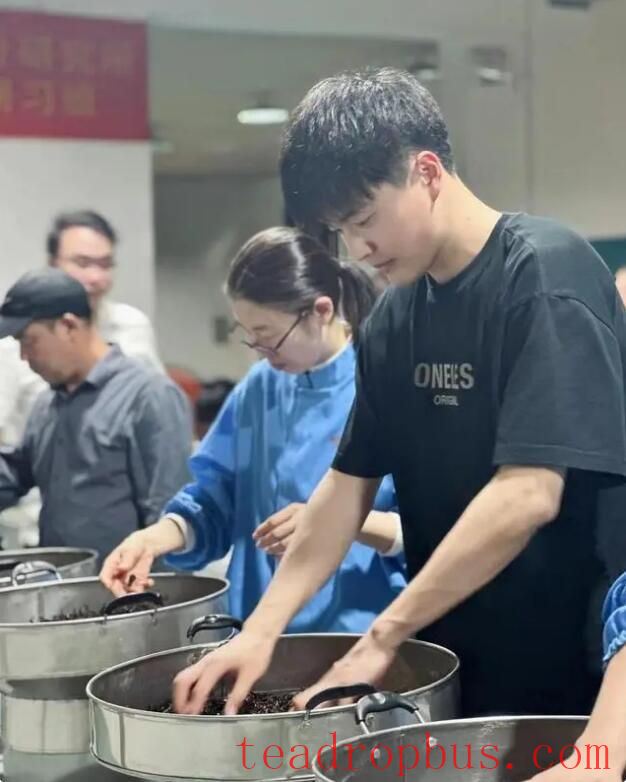
Currently, the third generation of the Beilao tea lineage has arrived. Hu Xiaolin's son, Hu Jiahao, born in 1995, has been exposed to the hard work of adults in the tea fields and the overnight production and packaging in the workshop since childhood. This early exposure sparked his curiosity and interest in tea. At the age of seven or eight, he started helping out by sweeping